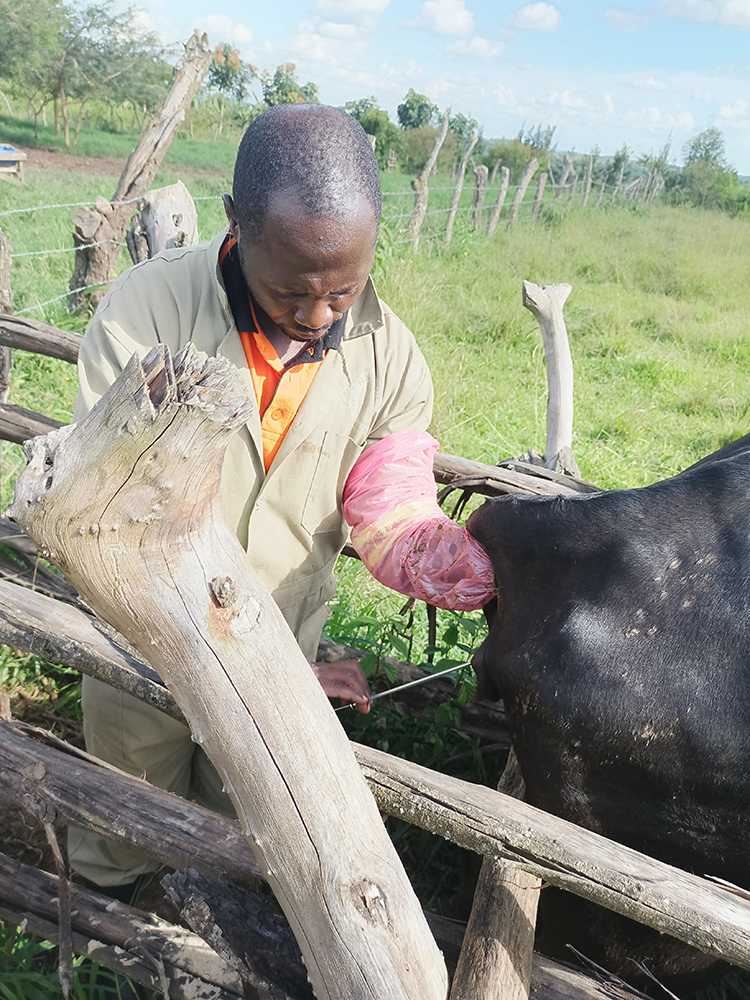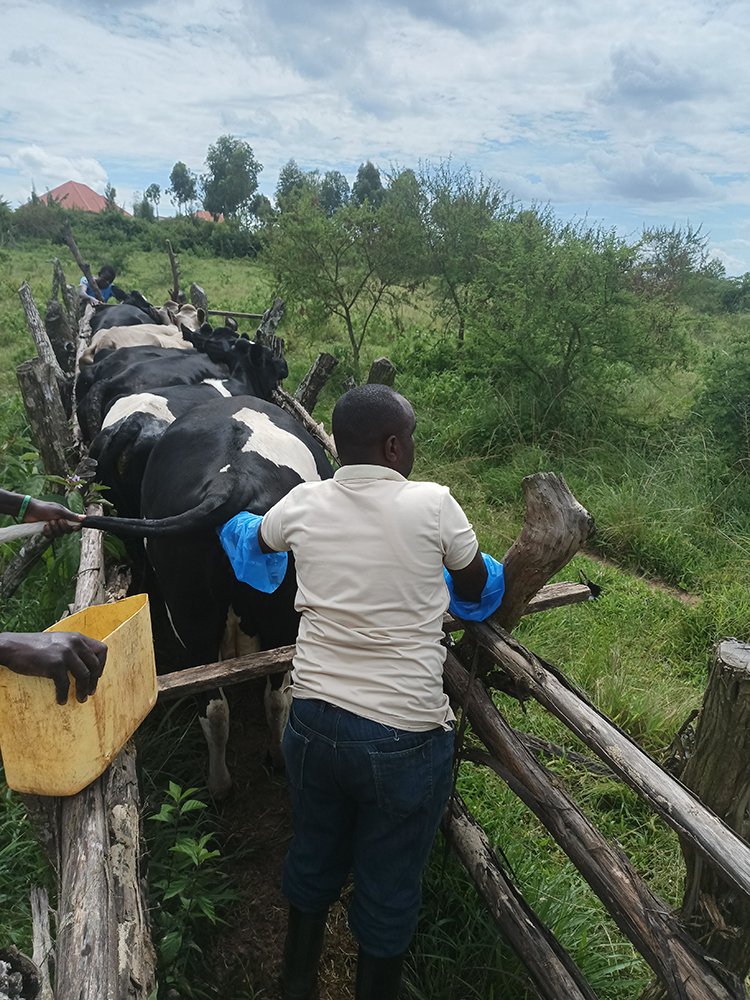Animal Nutrition
Animal Nutrition
As a result of climate change, increasing demand for livestock products such as milk, meat and by-products like hides, skins and manure, dairy farmers in the cattle corridor districts with limited grazing land are being sensitized and trained in rangeland rehabilitation technologies.
With experience in quality pasture seed production, pasture establishment, management and utilization, DFK started forage demonstration gardens to train dairy farmers in the cattle corridor and to replace unpalatable natural pastures and invisible weeds with improved pasture plots, over sowing to boost fodder availability of pasture grasses such as Signal grass, Napier grass, Rhodes grass, Guinea grass and pasture legumes like Greenleaf Desmoduim, Centrosema seed, Siratro , Lablab, Alfalfa and multipurpose trees to reduce grazing pressure and environmental degradation.
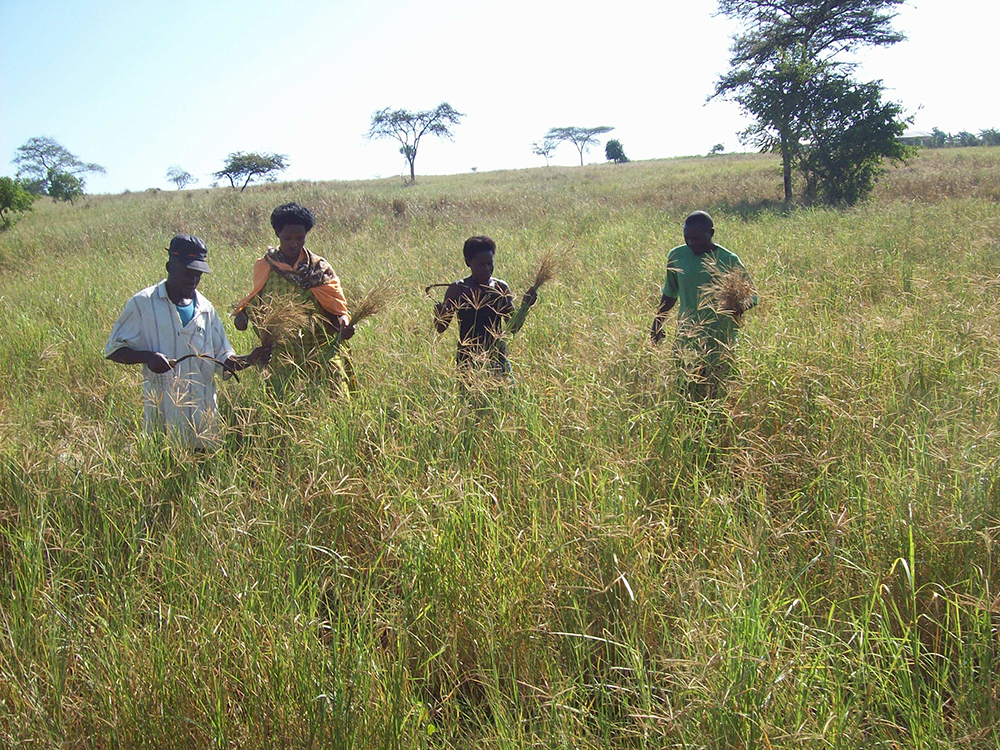
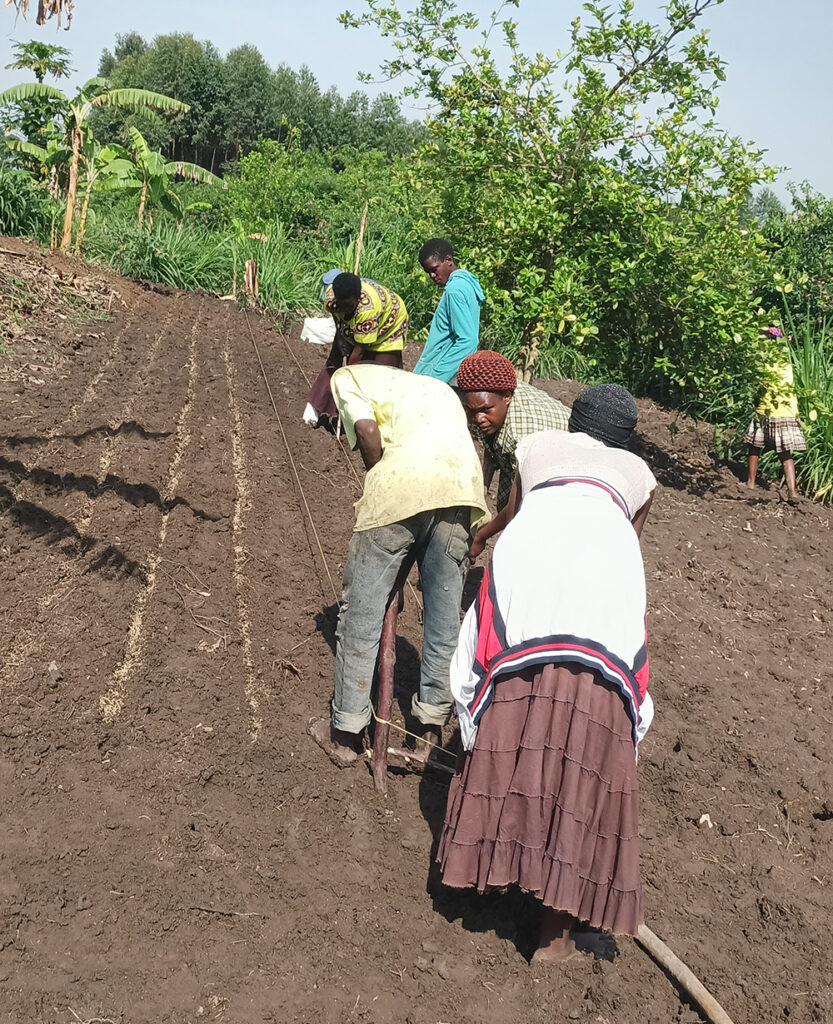
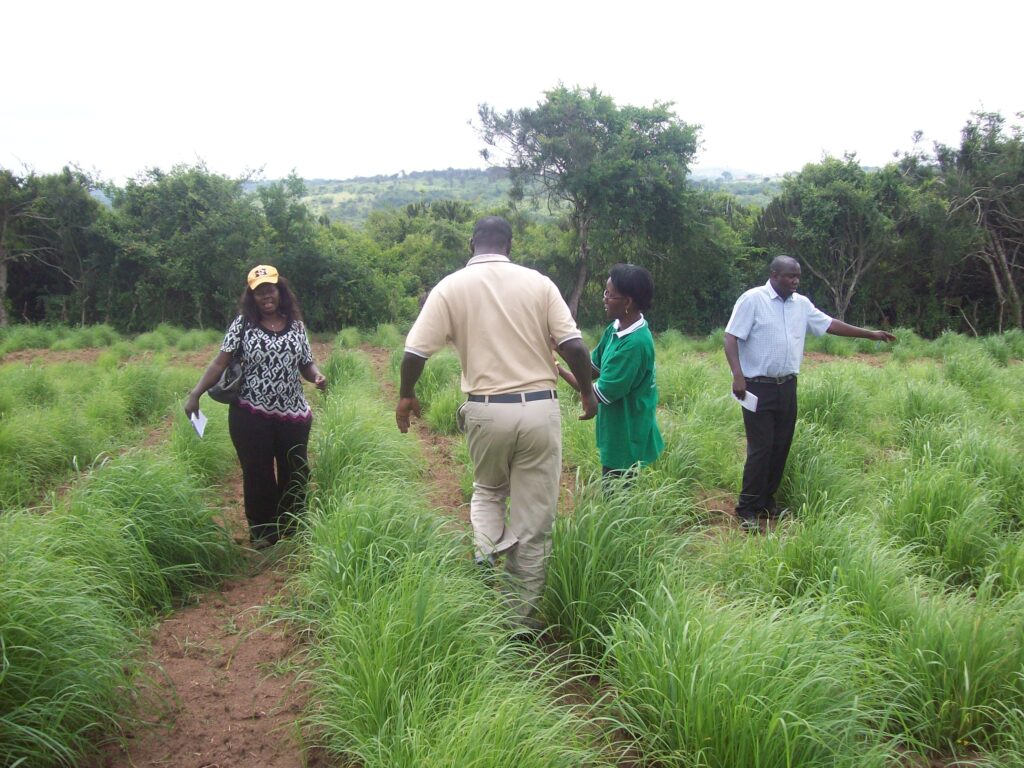
Breeding
Dairy bulls have a reputation for dangerous behavior and in any case raising one all year round is expensive. The better and cheapest option is using artificial insemination (AI) or embryo transfer. Artificial insemination is the process of collecting sperm cells from the proven bull and manually deposing them into the reproductive tract of a female animal. Artificial insemination has several benefits that include:-
Genetic improvement
Quick approach to access good genetics from across the world
Access to genetics from bulls that they would not be able to afford to purchase
Reduced number of bulls required
Access to breeds that are not available locally
Artificial insemination has equal or higher success rates when heat is detected in time and performed correctly by professional AI technician.
